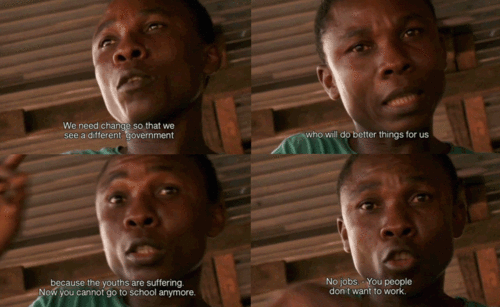Text
An African Election: Premiere Night!
Though there may not have been a red carpet or champagne bottles popped, but Racialicious and National Black Programming Consortium's (NBPC) AfroPoP.TV celebrated the PBS premiere of Jarreth Merz's An African Election in fine live-tweeting style.
We had a lively interaction with not only WGBH's Celeste Headlee and the panelists-- including director Jarreth Merz, multimedia broadcaster/commentator Derrick Ashong, VivirLatino owner and Univision writer Maegan Ortiz, and commentators Lenny McAllister and Stacy Washington--thanks to our many tweeters, like commentator Scot Nakagawa, the R's Tami Winfrey Harris, writer Kenyon Farrow, and scholar Dr. Regina Bradley.
Then, the movie started and the comments flowed.
And we Storified the event for posterity! Check out what folks said during the panel discussion and the movie here.
A bouquet of gratitude to everyone who supported the buzz for last night's premiere!
#An African Election#Jarreth Merz#Celeste Headlee#Derrick Ashong#Maegan Ortiz#Lenny McAllister#Stacy Washington#Scot Nakagawa#Regina Bradley
2 notes
·
View notes
Text

3 notes
·
View notes
Text
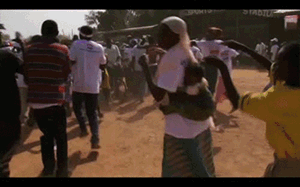

When was the last time people this were excited to vote?
An African Election. October 1 on World.
1 note
·
View note
Text
AAE Tweet-Up: Ghanaian Women And The 2008 Election
We bring the tweetversation full circle to Ghana's stabilized democracy and what it means to Ghanaian women. Did the 2008 election bring changes in the lives of the women living there? Did the government honor any part of the feminist document Women's Manifesto For Ghana? Can feminism move the policies necessary to gender equity in Ghana forward?
Ghanaian feminist Nana Darkoa Sekyiamah, who not only works as the Communications Officer at the African Women's Development Fund but co-runs the fabulous, don't-sleep-on-it blog Adventures From The Bedrooms Of African Women (all about safer sex and sexuality geared towards African women and progressive African men), graciously closed out our tweet-up series by answering these questions as well as giving her own thoughts about Jarreth Merz's An African Election.



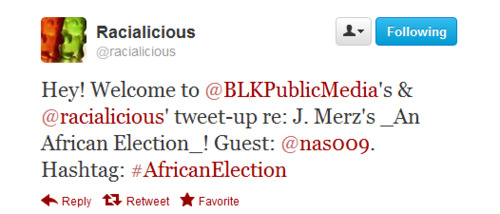
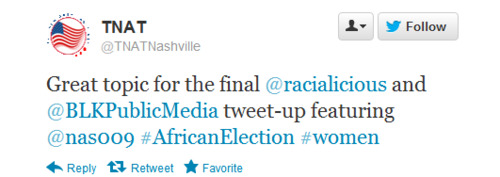
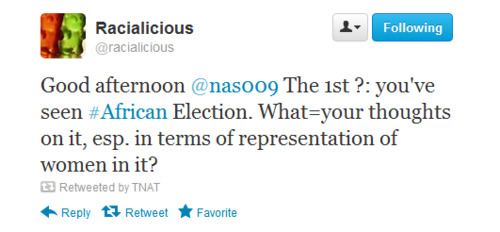

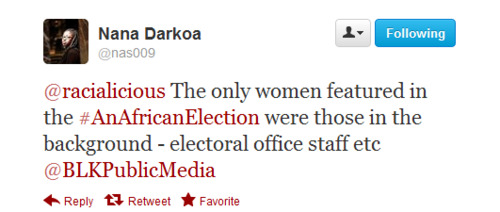

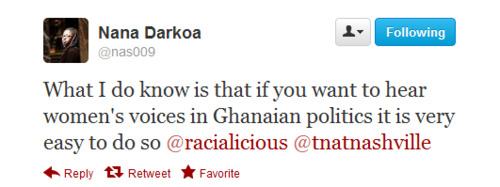




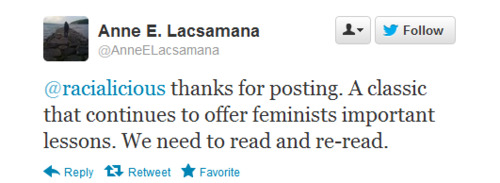





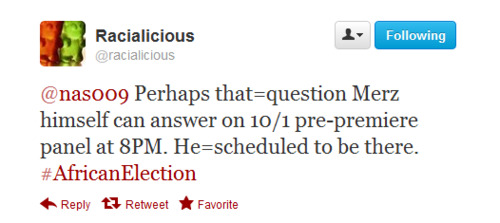
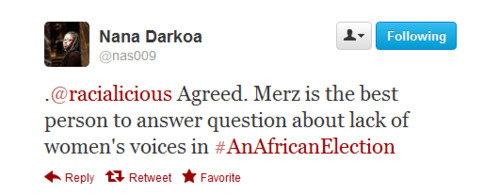
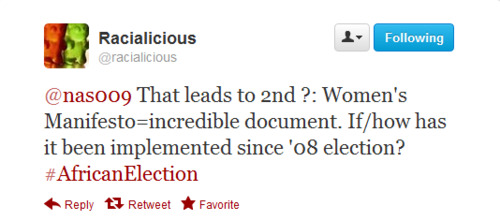
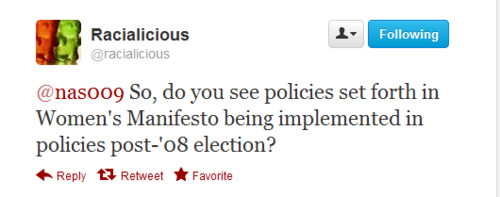
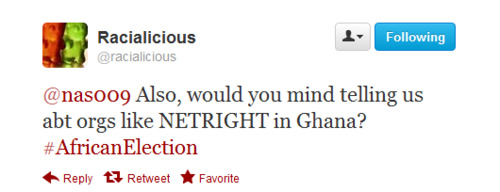
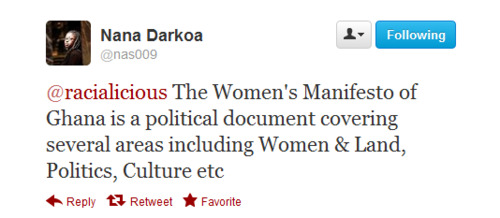



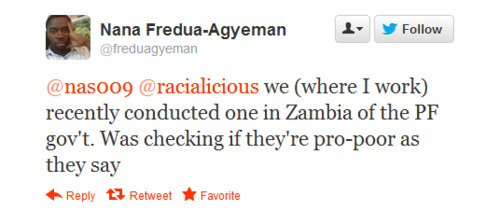



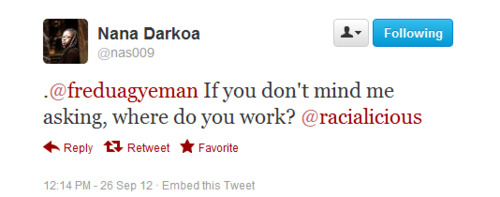

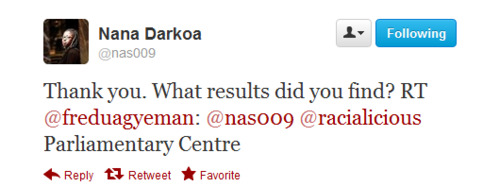

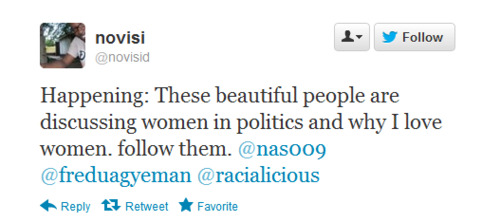




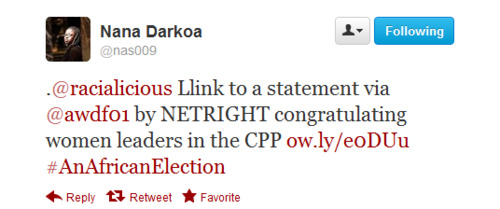



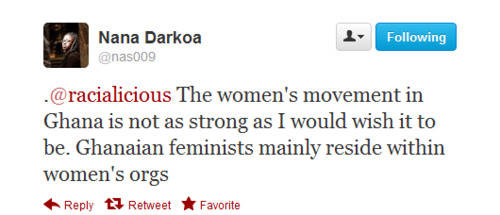
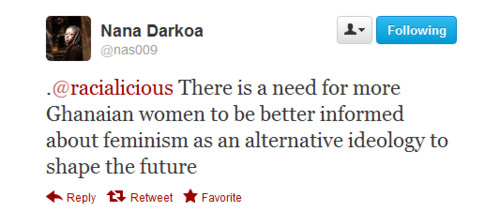


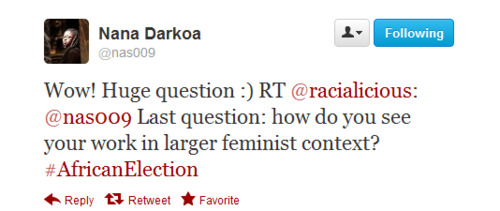

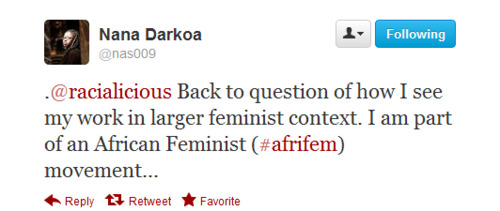
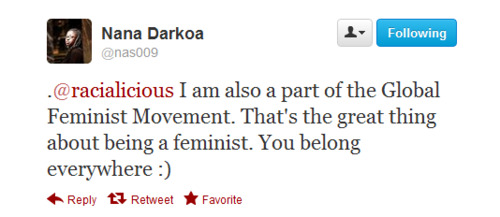
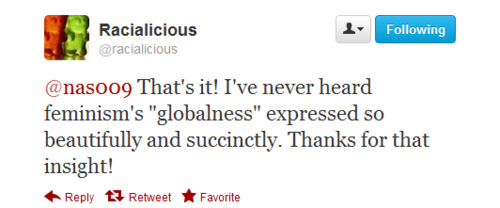
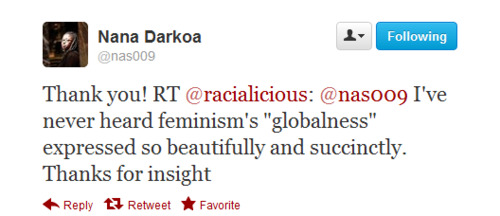





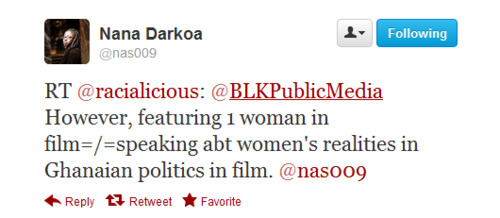
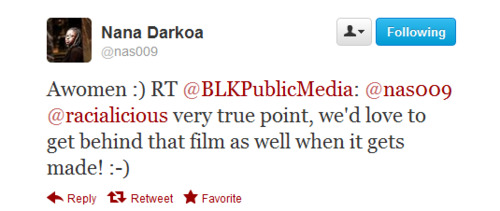
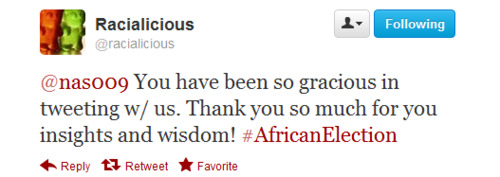

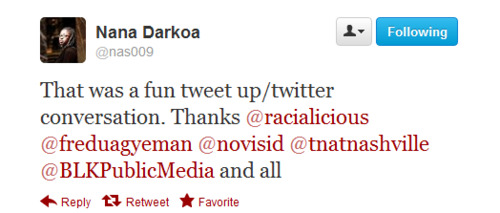

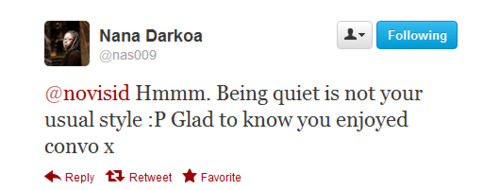
We at the R and National Black Programming Consortium's (NBPC) AfroPoP.TV are so thankful to our guest tweeters Dr. Benjamin Talton, Dr. James Peterson, Dr. Yaba Blay, Minna Salami, and Nana for guest-tweeting and to everyone who hung out with us.
Please don't forget tune into PBS' WORLD Channel on October 1 for the public-media premiere of An African Election and the pre-premiere panel. The panel is scheduled to include filmmaker Jarreth Merz, journalist/author Dayo Olopade, VivirLatino's Maegan Ortiz, and multimedia superstar Derrick Ashong.
The panel kicks off at 8PM, and the premiere starts at 8:30PM with live-tweeting from (among others) Racialicious, NBPC, and Disgrasian's Jen Wang! Join us!
#Nana Darkoa Sekyiamah#Ghana#feminism#An African Election#African Women's Development Fund#Adventures From The Bedrooms Of African Women#Jarreth Merz#Women's Manifesto#Combahee River Collective#African American Women In Defense Of Ourselves#NETRIGHT#Benjamin Talton#James Peterson#Yaba Blay#Minna Salami#Dayo Olopade#Maegan Ortiz#Derrick Ashong#Disgrasian#Jen Wang
1 note
·
View note
Video
youtube
Kwame Nkrumah’s Term as President of Ghana
A clip from An African Election
Premiering October 1 on World.
1 note
·
View note
Quote
“If every four years you go to the polling station and you put a piece of paper in a ballot box and you are not generating sufficient wealth--and you’re not distributing the wealth that is generated equitably, and people still suffer from poverty, ignorance, and disease, [then] democracy is absolutely meaningless."
--Journalist Kwesi Pratt, on the what democracy means without material gains for the voters.
25 notes
·
View notes
Text

1 note
·
View note
Text
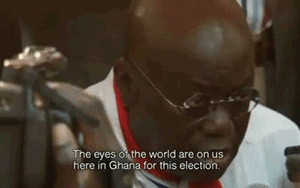
1 note
·
View note
Photo

An African Election. October 1 on World.
0 notes
Quote
“I want people to look at my children and my children not to feel that being African is something to be ashamed of because Africa is always looked at as a basket case. And, more importantly, I want the western world to come and learn from what we have in Africa because I think we have a lot of wonderful things here that are overlooked because we are considered to be poor and backward and unstable and to show that, as a community, we respect, we learn, we grow together.”
--Hannah Tetteh, NDC spokesperson, speaking on what the Ghana's 2008 election meant and still means.
76 notes
·
View notes
Text
AAE Tweet-Up: African Feminisms With @MsAfropolitan And @fiyawata
What about the women in Ghana?
That was the big question we wanted to answer in yesterday's tweet-up, since it's touched on in Jarreth Merz's documentary An African Election.
So, we asked two experts on African feminisms, Minna Salami (a.k.a. @MsAfropolitan) and Yaba Blay (a.k.a. @fiyawata) to give their Twitterfied thoughts on how feminism influences the politics and policies in Ghana and other parts of the African continent. And, wow, they gave us a lot to think--and tweet--about! (We also got unexpected signal boosts from Feministe and African Diaspora thought-leader Arrianna Marie!)

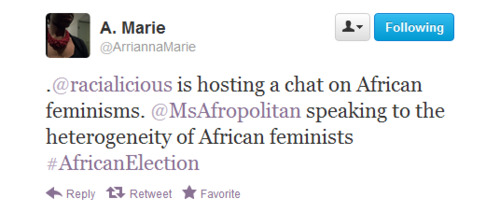
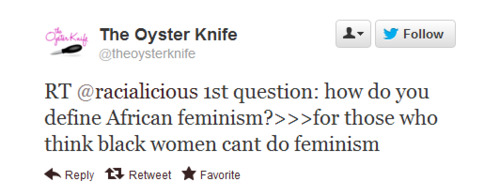
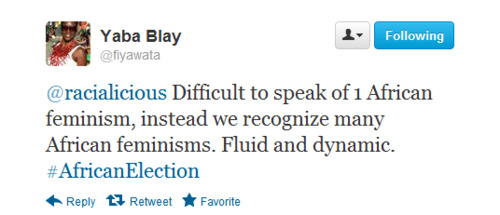
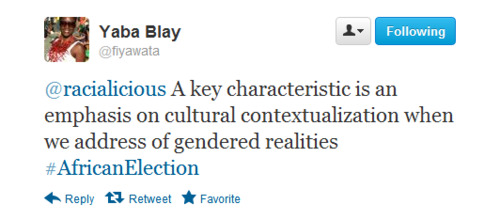
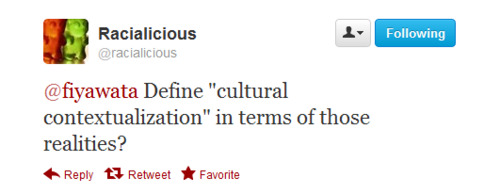




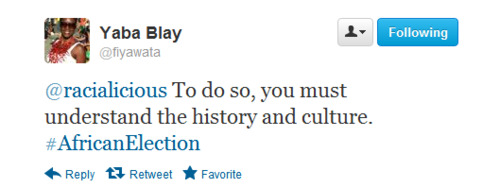

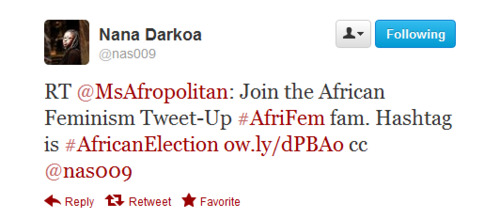
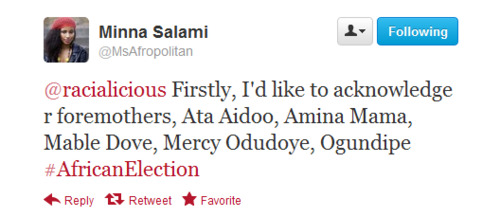
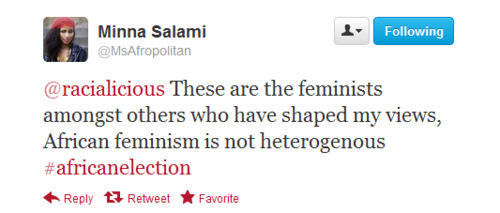

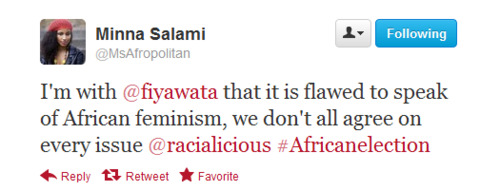




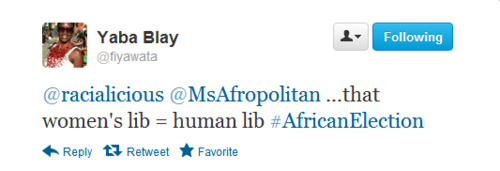


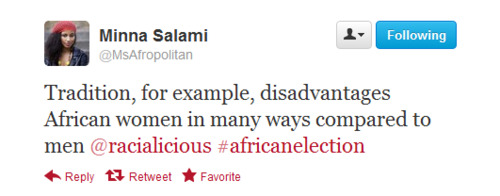



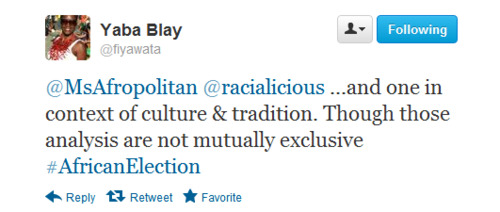

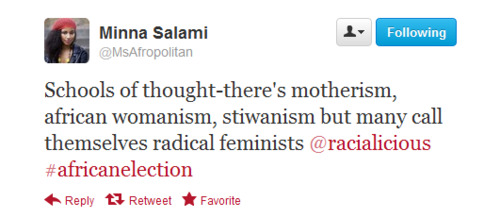
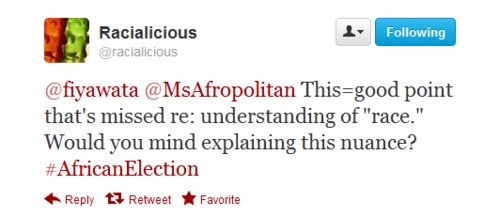

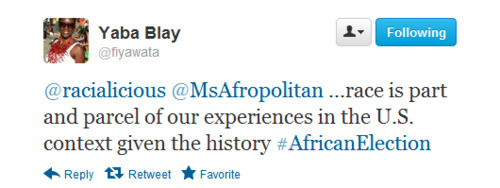

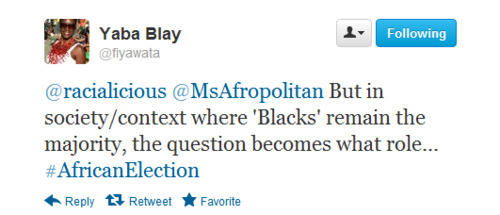


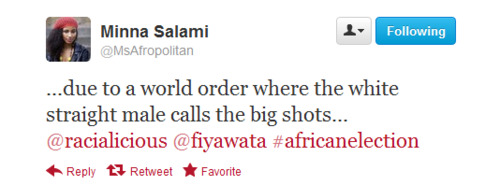






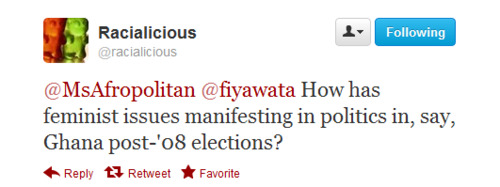


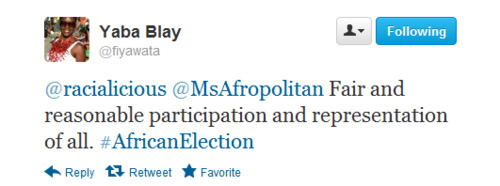
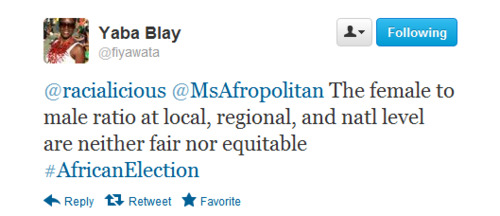

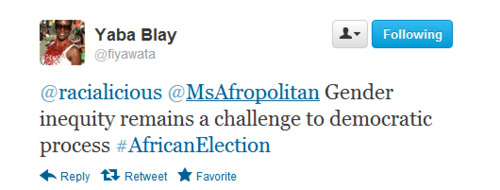


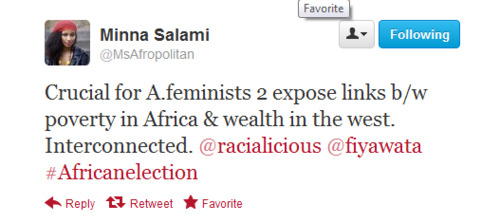

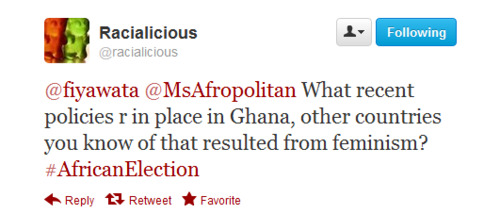



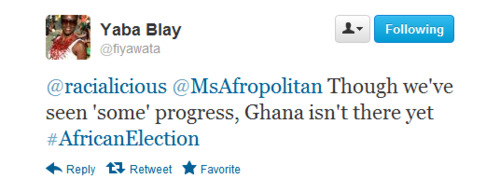

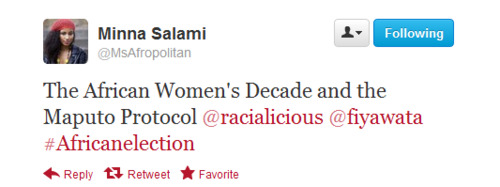


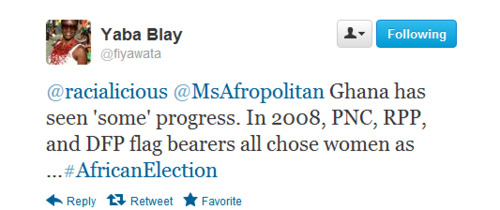
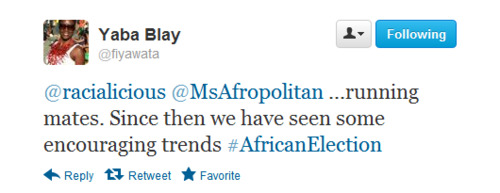






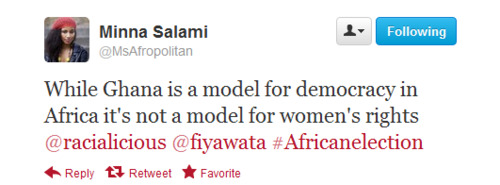
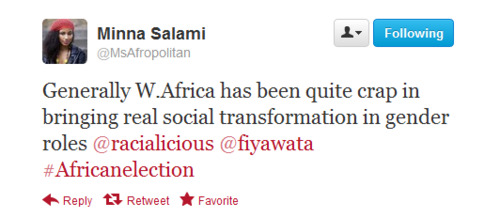
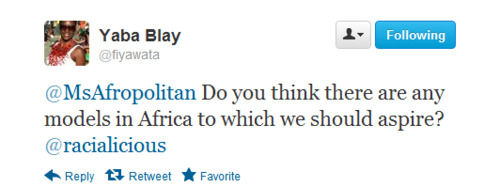


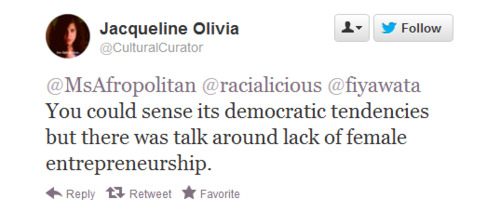

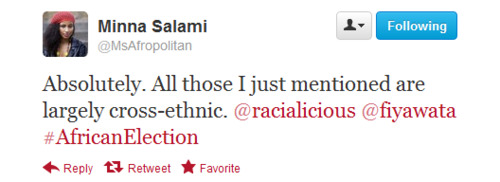







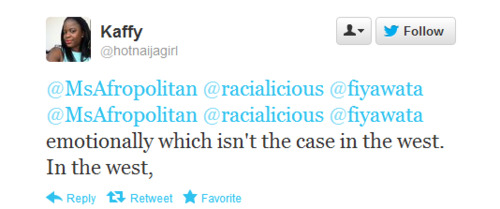


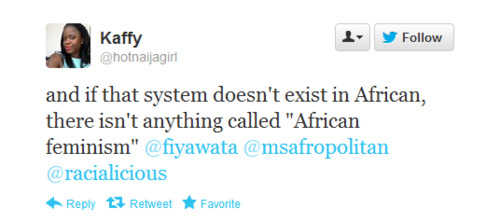
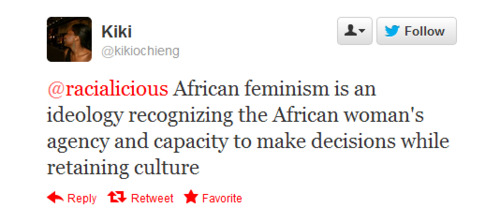
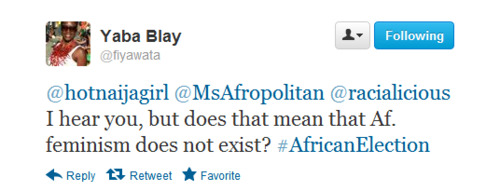
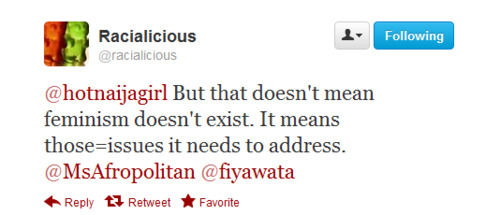
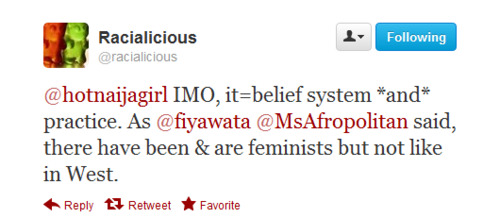



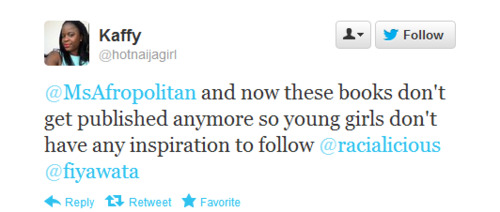


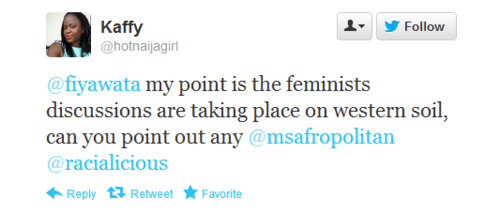

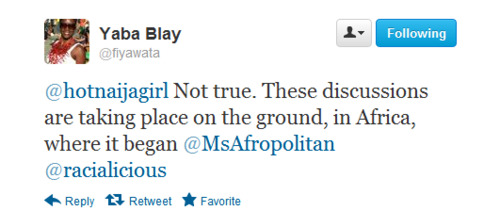





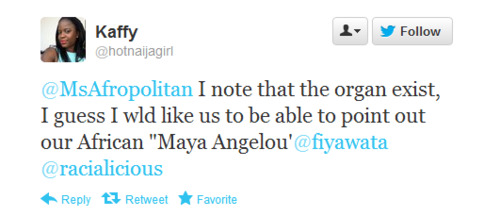
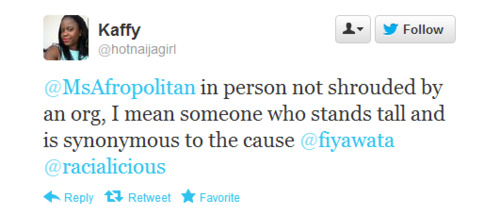

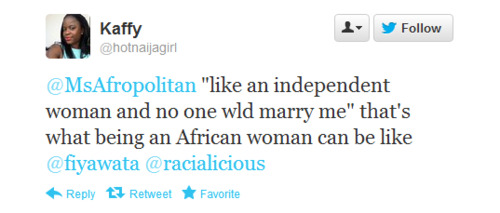
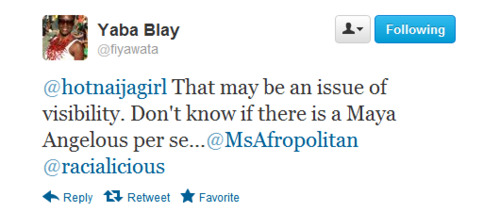



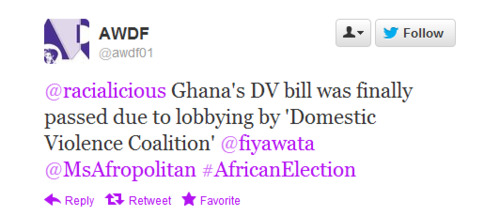

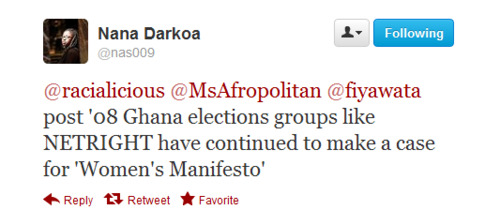

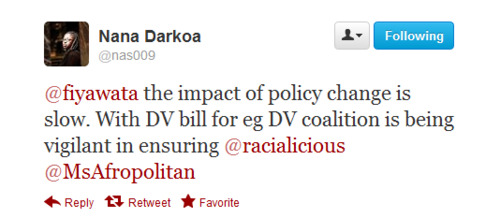




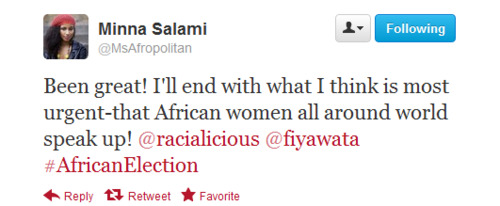







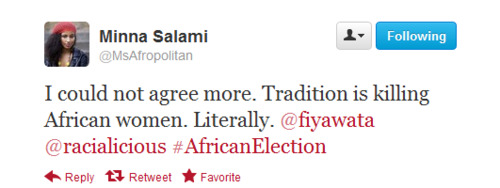



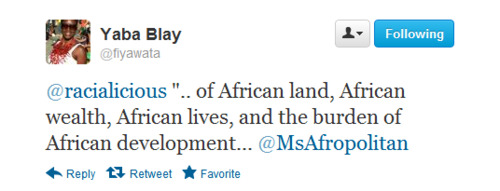

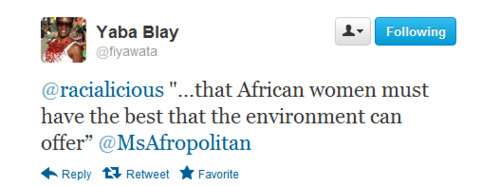


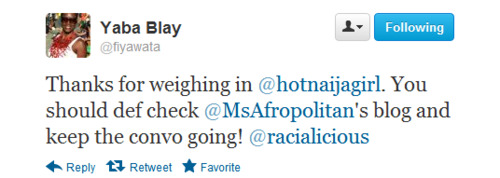




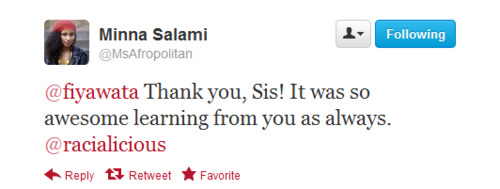


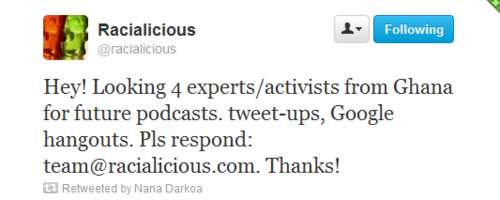



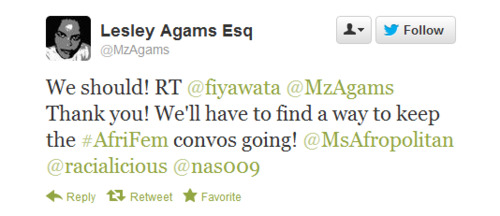



An African Election premieres October 1, 2012 on PBS' WORLD channel.
#Minna Salami#@MsAfropolitan#Yaba Blay#@fiyawata#African feminisms#feminism#Ghana#politics#policies#race#Women's Manifesto#Nigerian Feminist Forum#Feminist Africa#African Gender Institute#Green Belt movement
0 notes
Quote
“There is a perception of Africa that is very antiquated...that everything that comes out of Africa--apart from its resources--is burdened with failure. I think there are stories that need to be told that are African success stories.”
Jarreth Merz, director of An African Election, in a 6/15/12 interview with Mac-Jordan Degadjor on what motivated him to do the documentary.
131 notes
·
View notes
Text
What Votes Count? On Voter Fraud And Intimidation [An African Election]
It all came down to Tain.
In An African Election, the results of the 2008 were decided based on multiple run-off votes. Each time, the paper ballots were painstakingly counted and verified, and there was much discussion about not disenfranchising the elderly and those who did not have formal identification.
But times have changed.
The decision was made to upgrade the voting process from the fingerprint model to a complex biometric system, and is being rolled out nation wide. Officials are ferreting out multiple registrations and asking citizens to come forward and assist with the process. Registered voters also received voter ID cards and are informed that they will not be able to vote if they are not on the national register. Debates about what is required to vote are tough ones--on one hand, there needs to be a checks and balances system that ensures that people can't game the system. On the other hand, throwing up barriers tends to reduce people's willingness to vote. And the requirements can be quite strict. During the registration period, would-be voters had plenty to remember:
Prospective voters would have to show their old voters identity cards, passports, national identity cards or National Health Insurance cards. People without any of these must be accompanied by two registered voters who will vouch for their nationality and age. Ghanaian birth and baptismal certificates cannot be used.
Some political party operatives are angry, believing the registration drive has been mishandled; the Electoral Commission has refused to extend the deadline.
There is no easy solution for this kind of problem--the issue of managing elections plagues every country. In the United States, conservative groups are using the ghost of the ACORN scandal to anoint themselves "poll watchers" to root out voter fraud. While their stated intentions are to prevent election fraud, these groups produce the same effect as Ghana's "macho men"--intimidating voters at the ballot box. As Brentin Mock reports for Colorlines:
Expert after expert has refuted assertions of widespread voter fraud. In Florida, only 10 cases of a non-citizens who may have voted have been found, according to University of Florida elections expert Dan Smith. Colorado’s Gesssler regularly sells stories about masses of people double-voting and literally dying to commit fraud—so much that even their corpses vote.
But a News21 investigation found just 16 cases of double voting or voter impersonation since 2000 in Colorado, and just one conviction in 2008. There have, however, been ample complaints about True the Vote intimidating voters. During Wisconsin’s recall election, students complained that True the Vote volunteers harassed them. The group’s regional director Erin Anderson told me the charges were false, but acknowledged that they couldn’t account for every volunteer they had in the state.
“We had an online training, but a lot of people participated in it,” said Anderson. “We know who they are but we don’t know where they ended up.” The complaints were significant enough that Wisconsin’s Government Accountability Board, which is responsible for state election activities, issued a statement saying “in recent elections we have received disturbing reports and complaints about unacceptable, illegal behavior by observers. Voters expect a calm setting in which to exercise their right to vote.” True the Vote took it personally.
The tensions increase when citizens consider how the Voting Rights Act is the subject of new debates in the Supreme Court. While Ghana is still piecing together their national standards for voter enfranchisement, it is worth wondering if the Electoral Commissions actions will lead to lawsuits, and if Ghana's Parliament will be able to craft new legislation around election rights after December 7th.
Biometric voter registration to start on march 2012 [Modern Ghana]
EC to release names of people engaged in double registration [Electoral Commission of Ghana]
EC project to register 13 million voters this year [Joy Online] Register ‘biometric’ or lose your vote – Afari Gyan [The Ghanian Times/Joy Online]
Press Statement: NPP on provisional voter register exhibition [Joy Online]
EC will not extend exhibition of biometric voters' register [Joy Online]
How the Right’s Building a ‘Poll Watcher’ Network for November [Colorlines]
Texas’ Road To Victory in Its Decades Long Fight Against Voting Rights [Colorlines]
An African Election will make its US premiere on October 1st on WORLD.
5 notes
·
View notes
Text
AAE Tweet-Up: Pan-Africanism And Ghana's 2008 Election With Dr. James Peterson
Eighteen days before the public-media premiere of Jarreth Merz's An African Election, and we at the R wanted to explore the philosophy that has guided Ghanaian politics and has captured the imaginations of people in Africa and the African Diaspora: Pan-Africanism.
We had an incredible tweetversation about it and Ghana's 2008 election with Dr. James Peterson, who's the Director of Africana Studies and and associate professor of English at Lehigh University. The chat spun into several great chats about the limits of the philosophy to gender politics to...well, check it out for yourself!
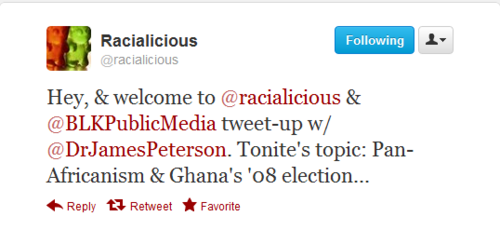
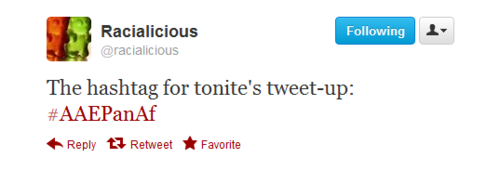
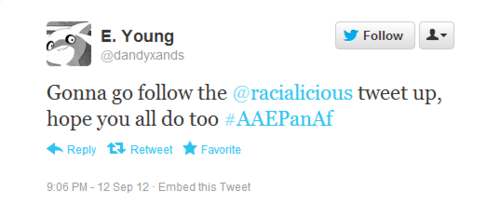
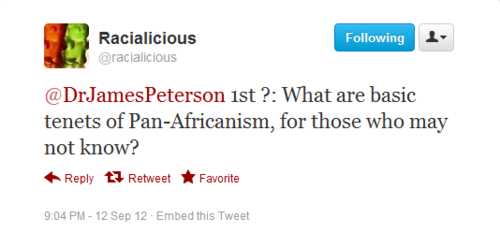

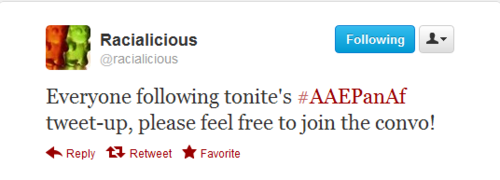



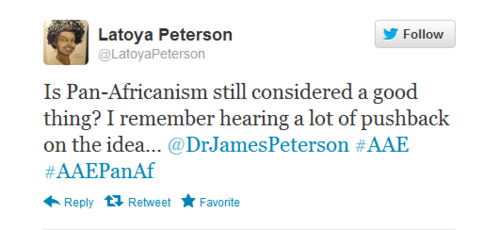


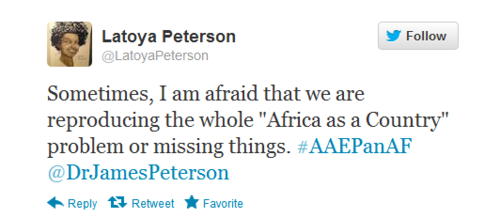
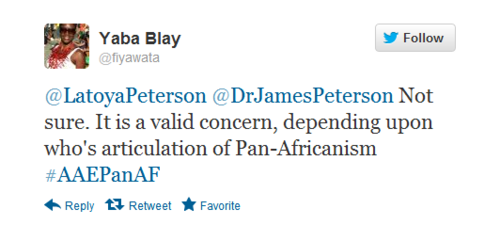

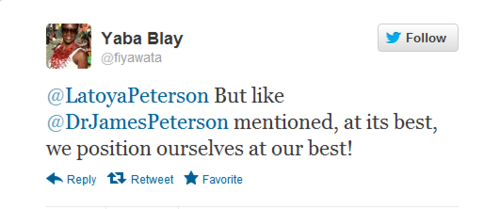



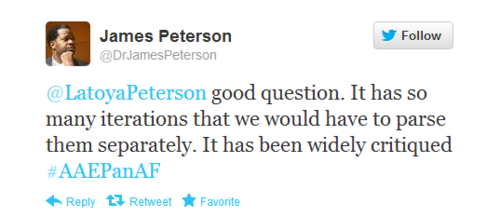


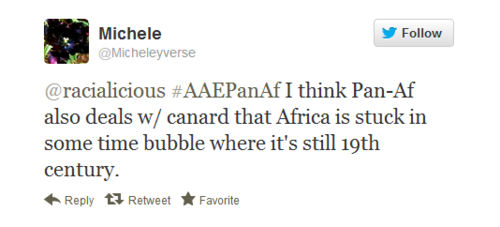

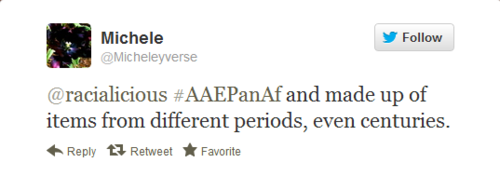





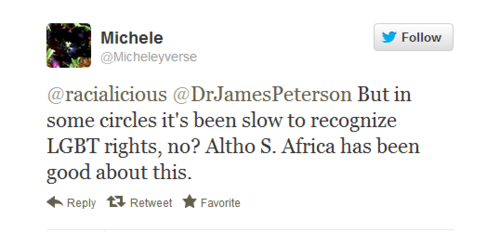

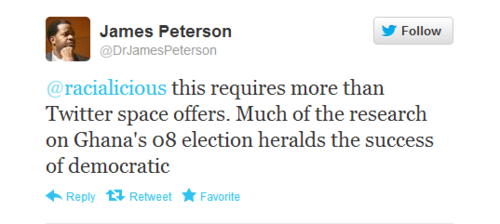


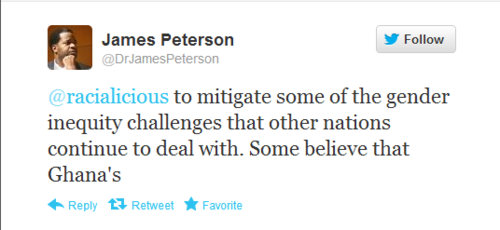

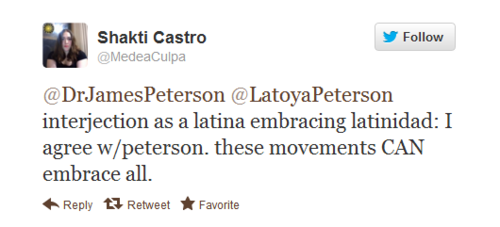










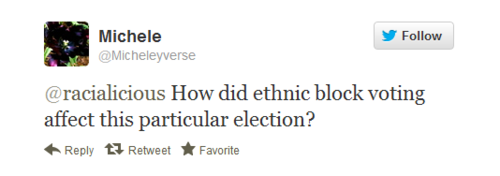




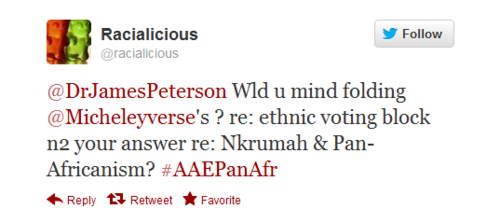
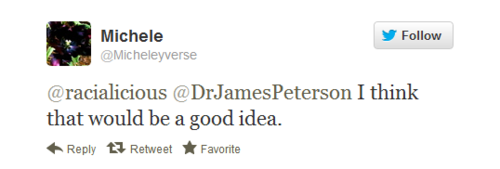







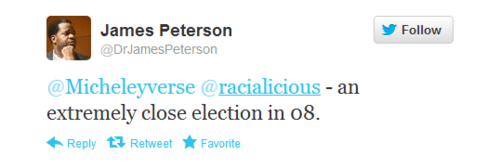
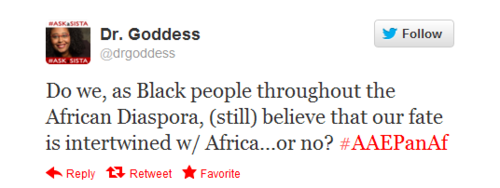
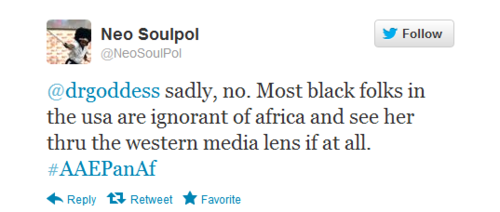




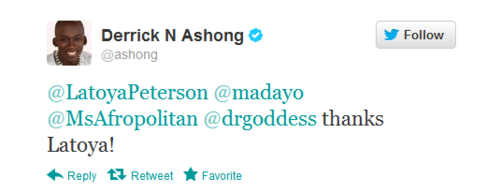
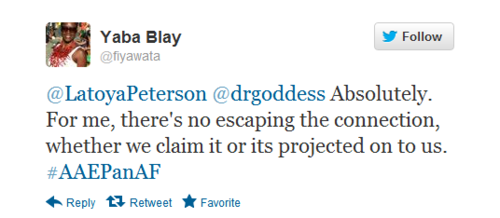
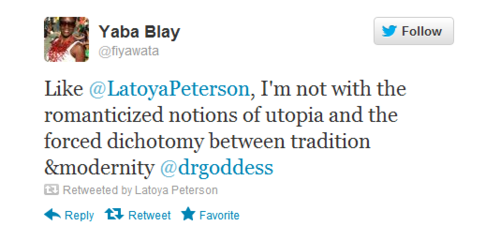


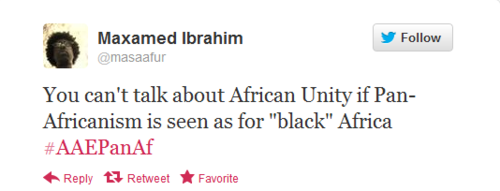




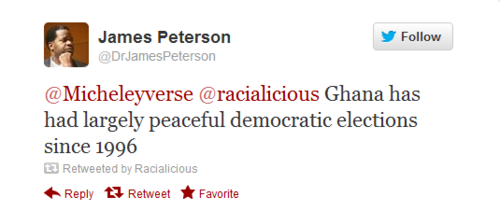
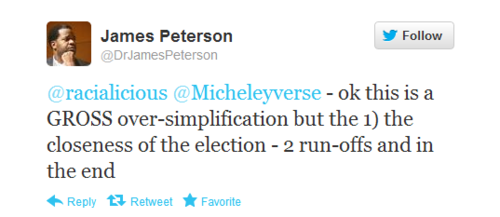
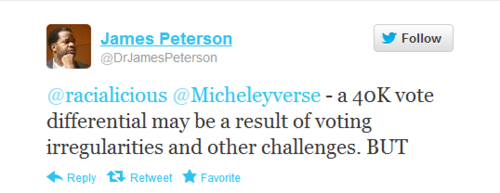
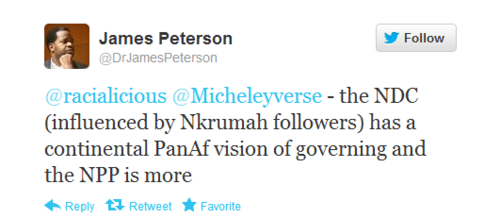



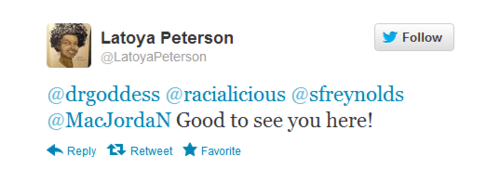

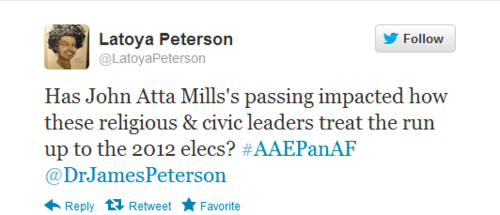


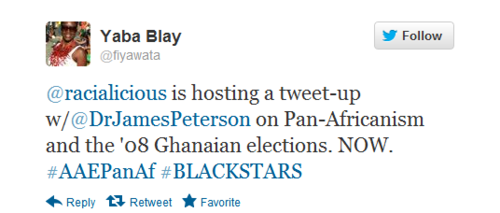
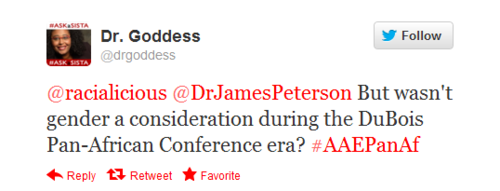

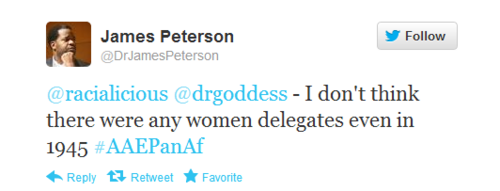




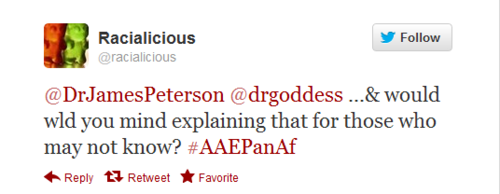

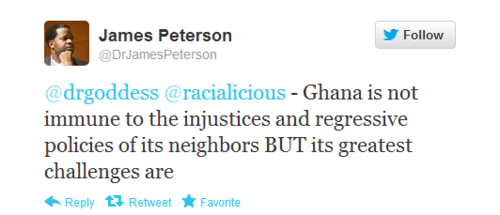

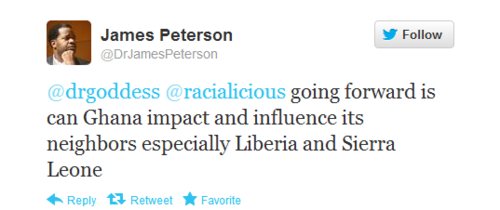


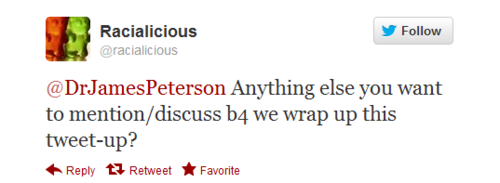




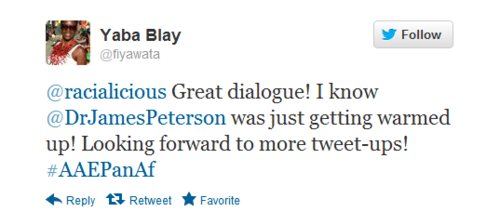

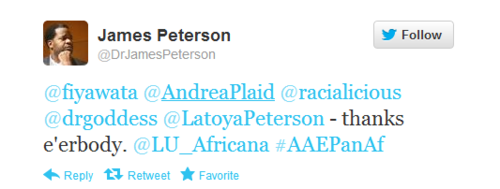
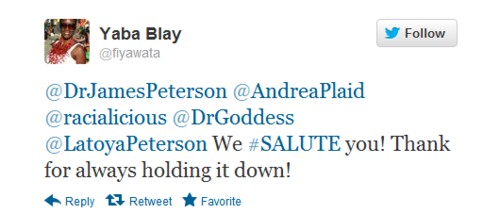




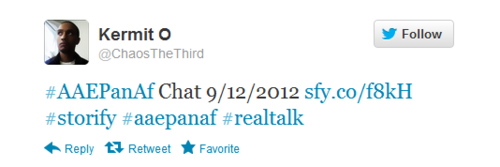

And here's Kermit O's Storify of the tweet-up.
0 notes
Text
The Right to Information: A Building Block of Democracy
What does it mean when citizens have the right to information? For a democracy to function, citizens must be able to make informed decisions, both in their daily lives as well as at the ballot box. As Ghana approaches its election season, the debates around transparency and access are at an all time high--but none is more watched than the Right to Information Bill (the RTI for short).
Democracy is a very simple concept with a very complicated execution. The creation and continuation of democracy is normally messy - entrusting the people to be informed and active participants in a society is a challenge for nations much further along in their histories. Between decolonization, military coups, and transitioning to Democracy, Ghana finds itself on the forefront of defining a new way toward democracy.
Ghana is now tackling a major issue: ensuring transparency. For many nations on the African continent, adopting bills and laws requiring a certain level of transparency in government are a necessary step on the road to full citizen participation. The Right to Information Bill was originally introduced in 1998 and has made little progress advancing through Parliament, making it both a shining beacon of progress and frustration. An in-depth piece from Al-Jazeera on the RTI quotes Affail Monney, the vice president of the Ghana Association of Journalists, who explains:
“As we speak, nothing obliges officials to provide information which they’re holding on behalf of the very people they represent,” says Monney, who is also part of GRIC. “Corruption is the bane to our development. And many parts of government and the business cycles are shrouded in secrecy.”
The World Bank supports a broader mission of Access to Information (ATI) across various African nations. The movement continues to gain steam. But the devil is in the details with this bill, and much of the debate in Parliament is over how the bill would be applied. Transparency in government is a lofty principle, but one that most governments shy away from. The United States passed their Freedom of Information Act back in the 1960s, but are still plagued with charges of cumbersome processes and the stonewalling of information. Ghana faces a similar battle--already, some of the hotly debated questions revolve around the responsibility of governmental powers. How many days constitute a reasonable response to the request? What does the Commission on Human Rights and Administrative Justice have to say about the text? What kind of costs are associated with distributing information, and who should determine what is reasonable?
Gabriel Gbiel Benarkuu, Brong-Ahafo Regional Coordinator of the Coalition for the RTI, explained to Modern Ghana:
“What politicians fail to see is that an effective right to information provides an enhanced and enabling climate for the full realization of other fundamental human rights. The right to information is rightly connected to the right to shelter, water and basic infrastructure and the right to development as a whole”, Mr. Benarkuu stated.
More the fourteen years after its proposal, the bill still waits for its day in the sun. While the current Parliament stated their intention to pass the bill, government officials are content to move the needle on progress slowly.
The RTI could be pushed to the backburner yet again: elections are looming, and Parliamentarian terms end in January of 2013. Many activists see grassroots support as the only way the bill will gain enough traction--here’s to hoping it remains a major campaign issue for all the parties.
Further Reading:
CHRAJ input delaying passage of Right to Information Bill [Joy Online]
A right to information in Ghana? [Al Jazeera]
Right to Information Bill will exonerate MPs, Ministers [Modern Ghana]
Right to Information Bill to ensure transparency in oil industry [Modern Ghana]
Parliament to approve Right to Information Bill [Modern Ghana]
13 notes
·
View notes
